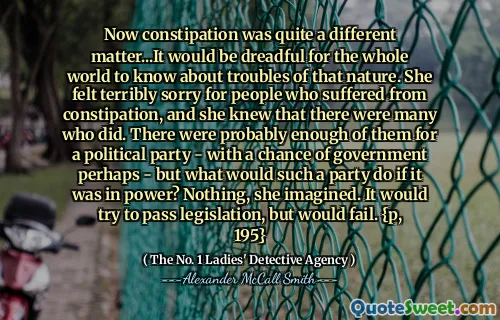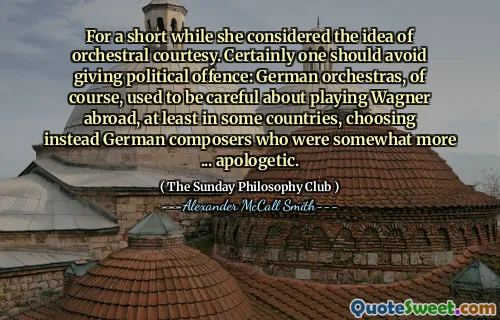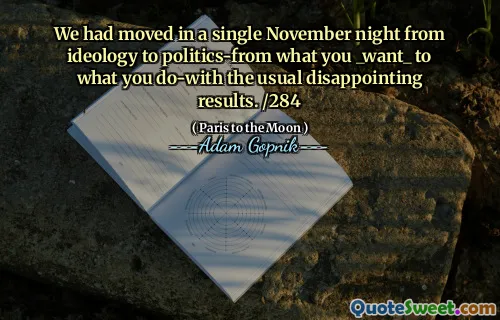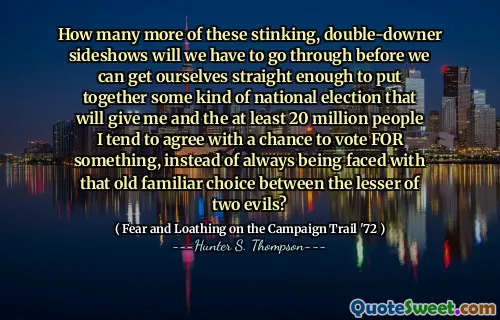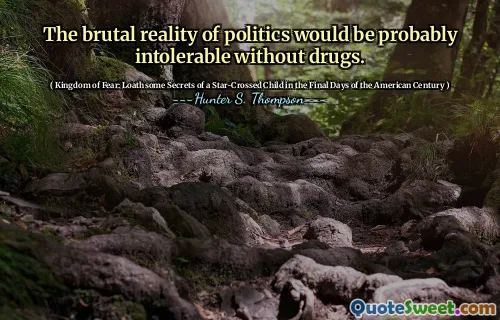
A senator once confided to me that the greatest need in Washington was the elimination of the cocktail party. He said: It consumes so much of our time that we don't have time for matters of state.
The quote highlights a poignant critique of political culture, particularly the informal social rituals that often overshadow substantive governance. Cocktail parties, emblematic of social niceties and networking, are portrayed here as distractions rather than productive engagements. This observation points to a deeper issue within political environments: the prioritization of appearances and social interactions over meaningful legislative work.
Such social engagements, while seemingly innocuous or even beneficial for relationship-building, can become impediments when they consume excessive amounts of time and energy. The senator’s candid confession suggests a frustration with the inefficiencies bred by these gatherings, implying that time spent on socializing could instead be dedicated to pressing matters of state. It raises broader questions about how politicians allocate their time and the potential consequences of mixing social life with professional duties.
Moreover, this quote invites reflection on the nature of political effectiveness and accountability. If politicians are caught up in ceremonial or social distractions, the public's interests may suffer due to lack of focus and urgency in addressing serious issues. In a way, the quote also critiques the performative aspect of politics—appearances maintained at the expense of action.
In today's fast-paced world, where information flows rapidly and challenges are complex, the need for concentrated attention to governance is paramount. The senator’s wish to cut out cocktail parties underscores a desire to move beyond superficiality towards a more direct, action-oriented approach in political life. Ultimately, it challenges us to consider what practices in our institutions support or hinder effective leadership.






